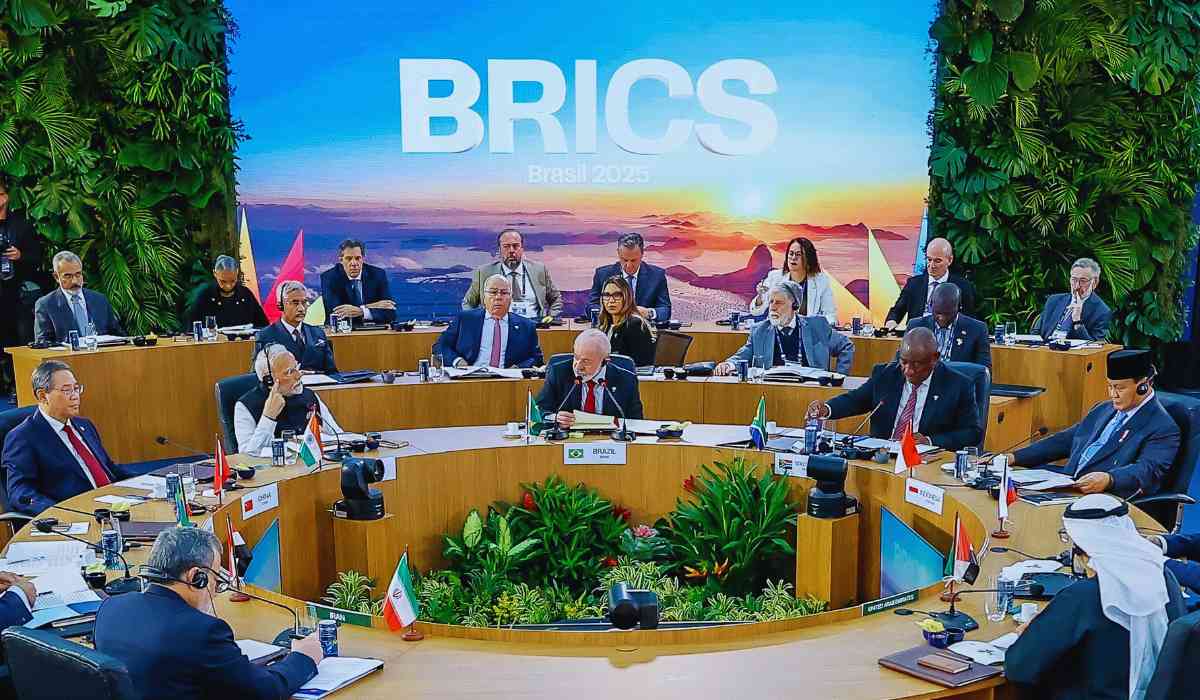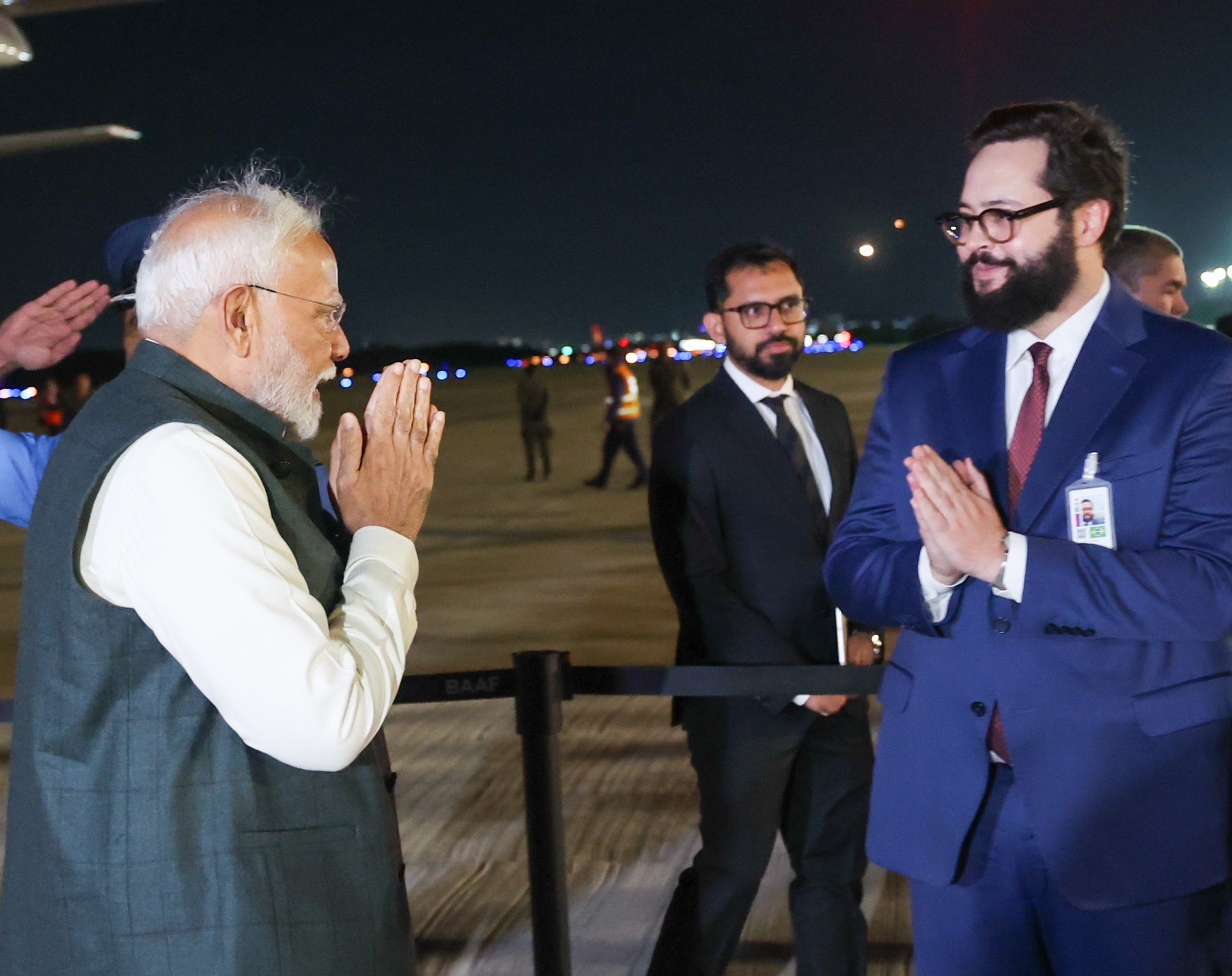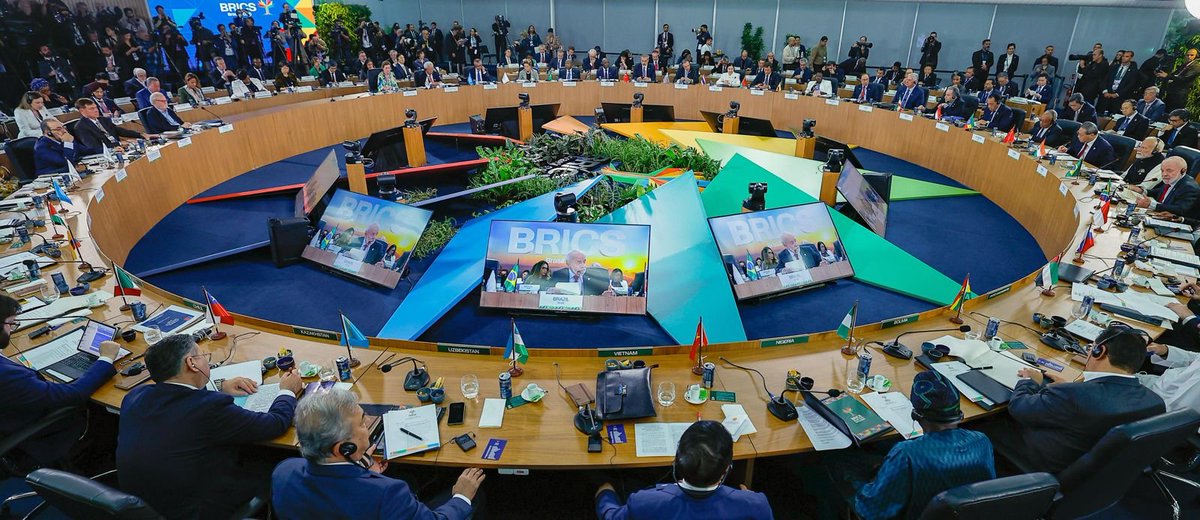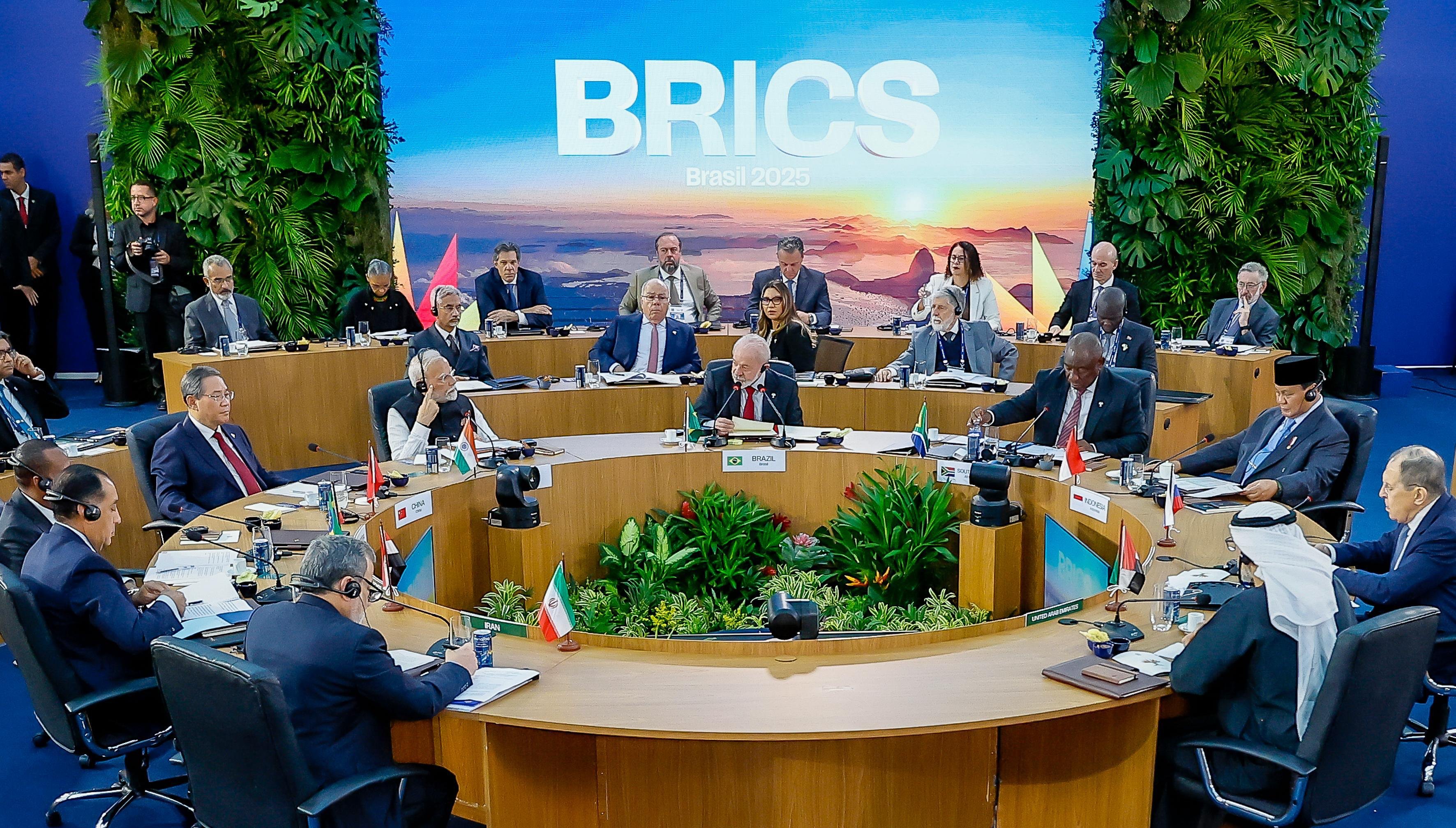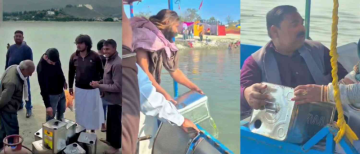Prime Minister Narendra Modi has arrived in Rio de Janeiro, Brazil, on July 6, 2025, ahead of the highly anticipated 17th BRICS Summit, set to run from July 6–7, 2025 . The summit, hosted under Brazil’s rotating presidency, brings together leaders from Brazil, Russia, India, China, South Africa, and newer members such as Egypt, Ethiopia, Iran, the UAE, and Indonesia.

A Warm Welcome and Cultural Echoes
At Rio’s Galeão International Airport, Modi received a ceremonial welcome. He was greeted by enthusiastic members of the Indian diaspora performing cultural dances, including one themed around India’s Operation Sindoor—an anti-terror operation. The prime minister engaged warmly with the crowd and later shared on X: “Landed in Rio de Janeiro, Brazil, where I will participate in the BRICS Summit and then head to its capital, Brasilia, for a State visit at the invitation of President Lula...”.
Summit Agenda: Reform, Equity & Cooperation
PM Modi strongly called for reforms in international institutions such as the UN Security Council, IMF, World Bank, WTO, underlining that existing systems are stuck in the 20th century . He famously remarked:
“21st‑century software cannot run on 20th‑century typewriters” .
Modi's address reflected India’s push for a more inclusive global order that values the contributions and challenges of the Global South.
Climate & Sustainable Finance
During discussions, BRICS leaders called for developed nations to share the responsibility of funding climate initiatives and acknowledged developing economies’ continued need for fossil fuels. They expressed support for Brazil’s Tropical Forests Forever Facility, aiming to protect forests and biodiversity.
AI, Health & Peace
The summit’s agenda spanned across AI governance, global health, terrorism, and peace. Modi condemned the April 2025 Pahalgam terror attack, stating that terrorism must not be tolerated under any guise. Sessions also focused on equitable AI usage, pandemic preparedness, and cross-border cooperation.
Navigating Internal Divides
BRICS has grown from 5 to 11 members since 2024, now representing half of the world’s population and around 35–40% of global GDP. However, this rapid expansion has brought challenges:
-
Absent High-Profile Leaders: Chinese President Xi and Russian President Putin are notably absent—Putin participating virtually due to an ICC arrest warrant and Xi citing scheduling conflicts.
-
Diverse Membership: The coalition now encompasses democratic and autocratic regimes, causing ideological friction.
-
External Pressures: With threats of U.S. tariffs by Donald Trump on BRICS-aligned nations during the summit, the bloc faces economic and diplomatic complexities .
Brazil has guided the summit toward less contentious topics—like health and green energy—to maintain cohesion.
India–Brazil Ties Deepen
Modi’s journey to Brazil marks the fourth time an Indian prime minister has visited—reinforcing diplomatic warmth. After the summit, he will undertake the first Prime Minister-level state visit to Brasília in nearly six decades. This visit is expected to strengthen ties in areas like trade, scientific research, defence cooperation, and sustainable development.
Looking Ahead
-
Summit Outcome: A Rio declaration was adopted, stressing reform, climate action, health, AI, and peace.
-
Bilateral Talks: Modi is scheduled to meet with President Lula and other leaders in Brasília to deepen India–Brazil relations.
-
Future Goals: Focuses will likely include getting developed countries to fund climate transition, reforming global institutions, and building AI frameworks. The cohesion within BRICS will be crucial to its global credibility.
In summary, PM Modi’s arrival in Brazil reflects India’s proactive stance on global reform and solidarity. It underscores broader themes—reforming outdated global systems, ensuring the Global South has a stronger voice, confronting climate change, and governing AI. The summit unfolds against a backdrop of expanding membership and international tension, making it a complex but pivotal moment for emerging economies.
With inputs from agencies
Image Source: Multiple agencies
© Copyright 2025. All Rights Reserved Powered by Vygr Media.

